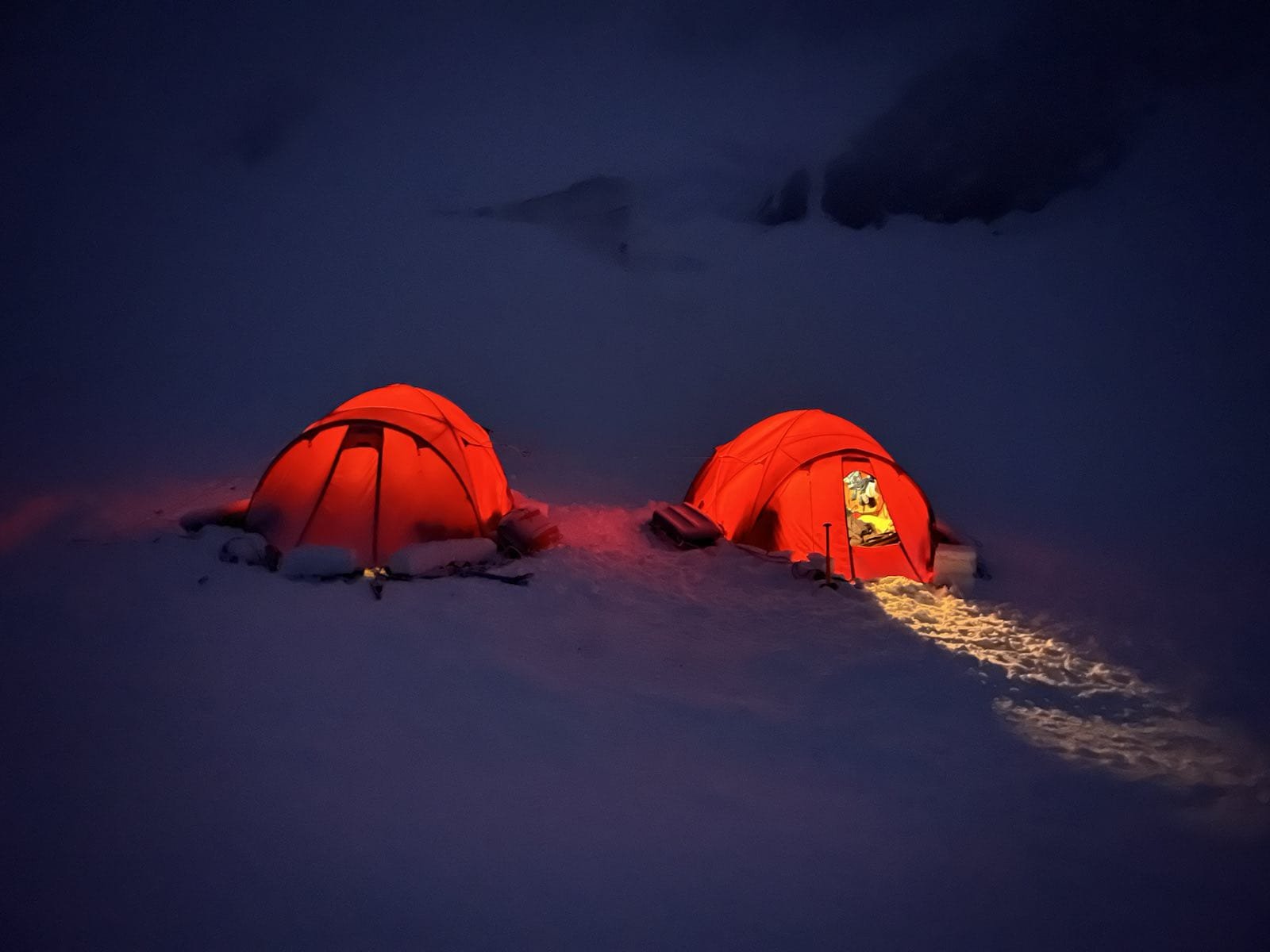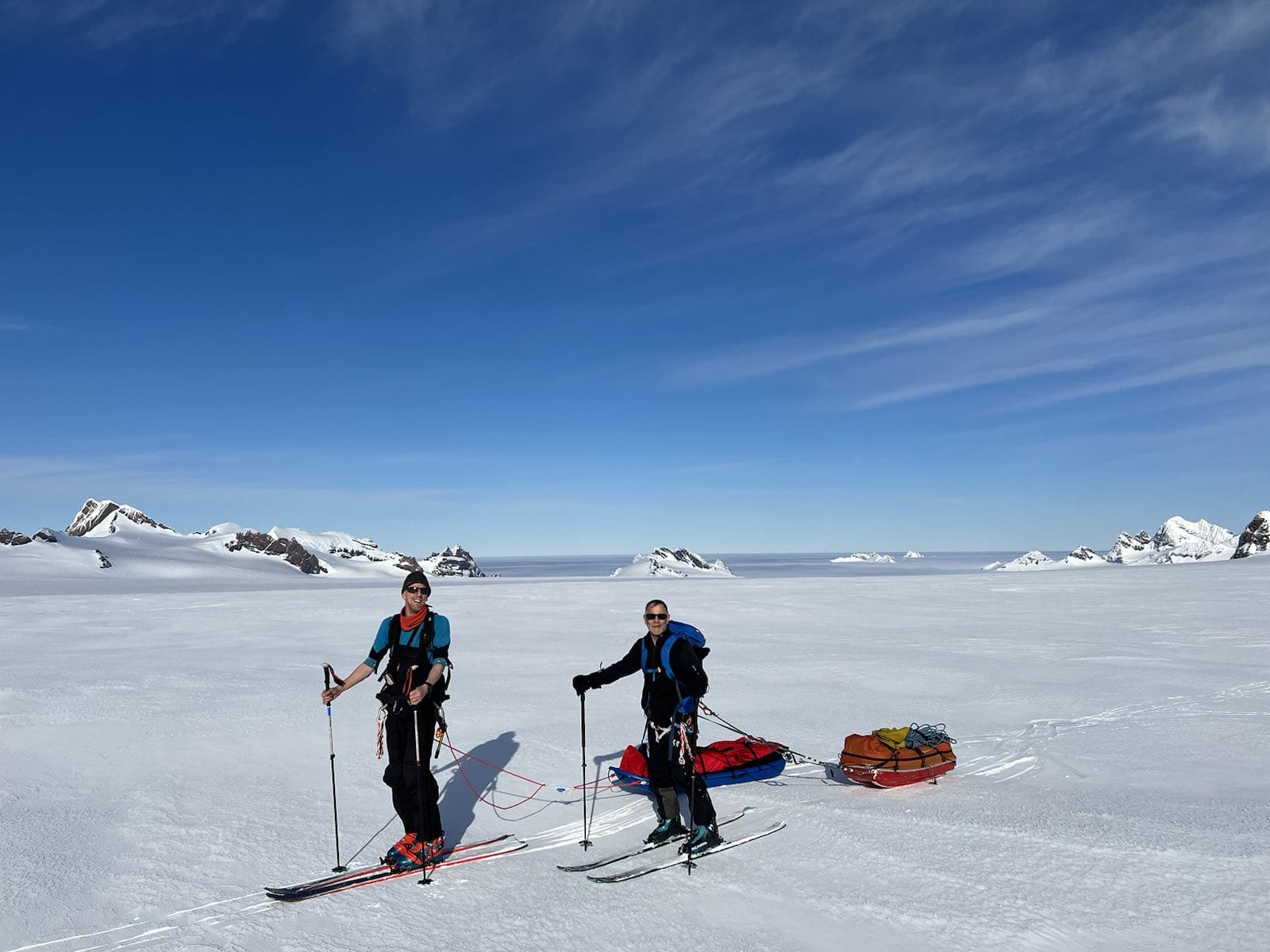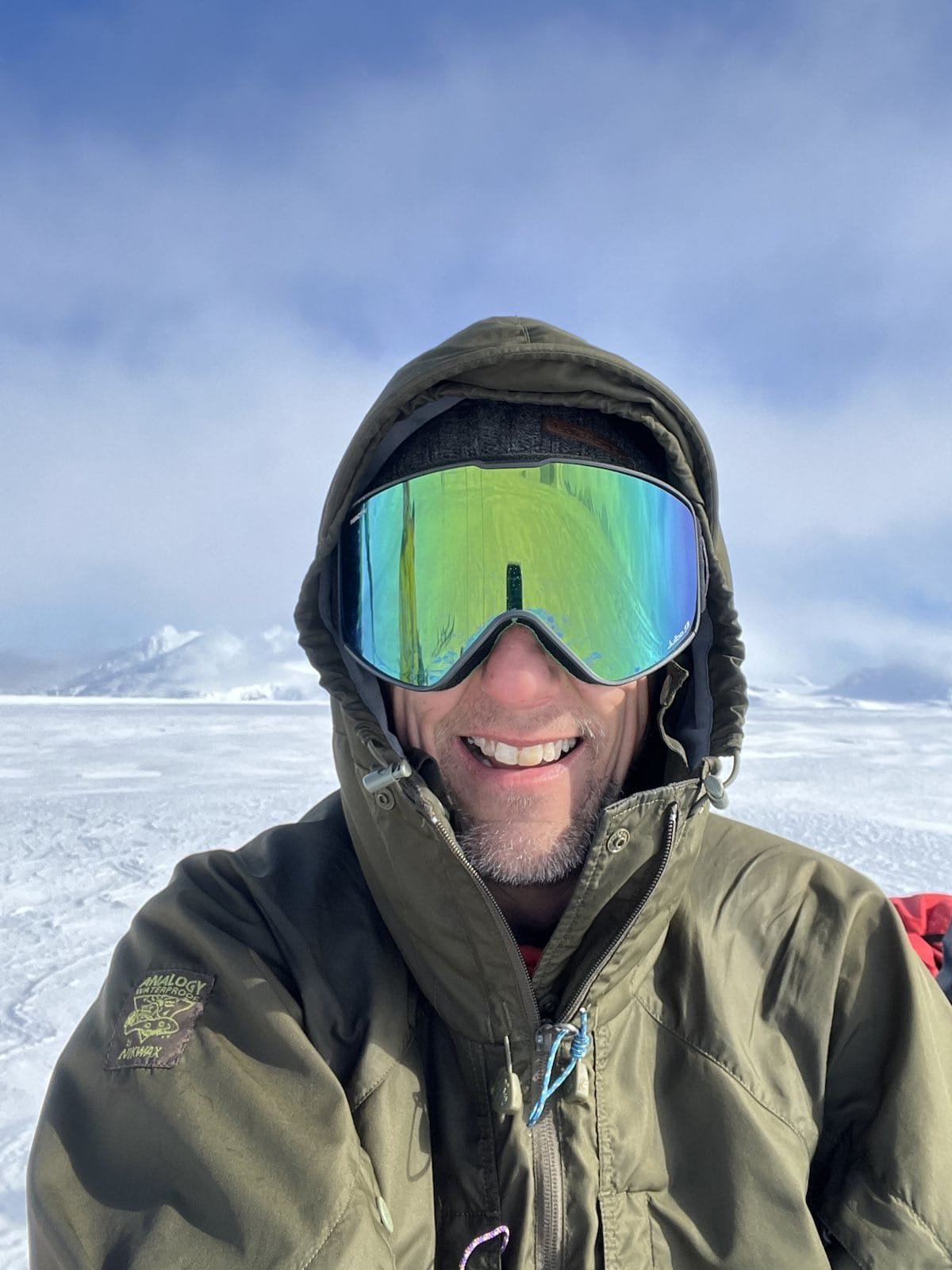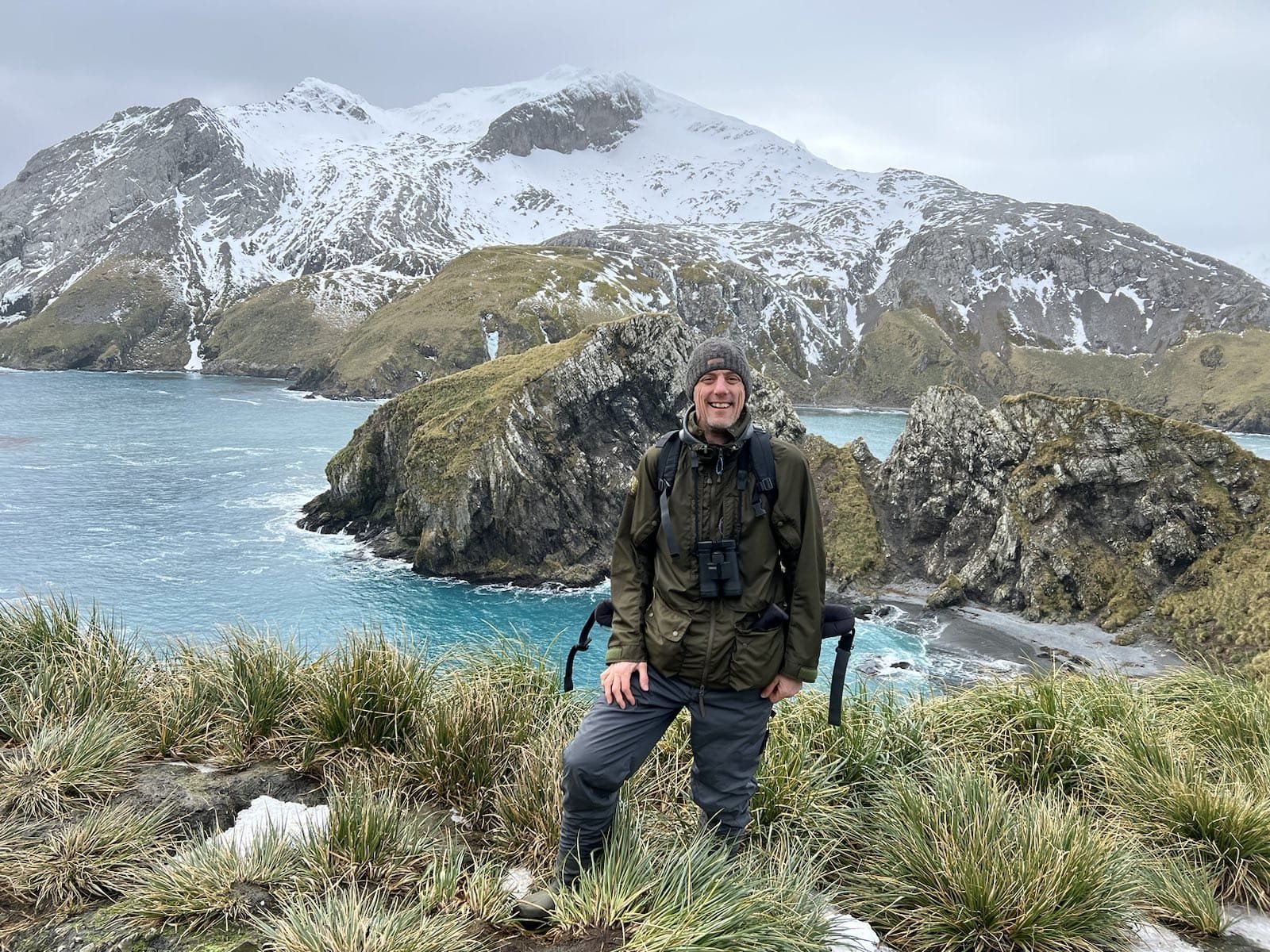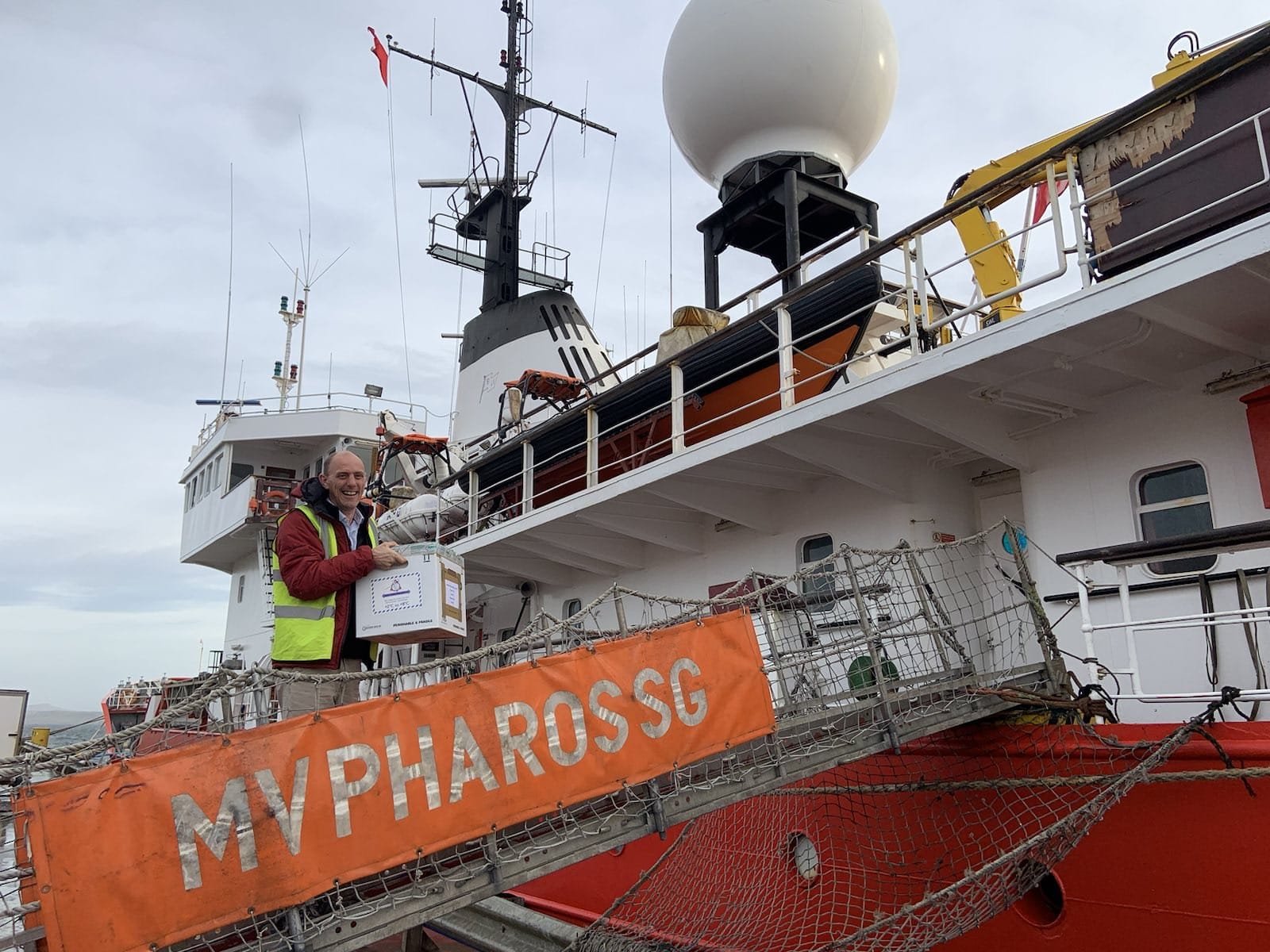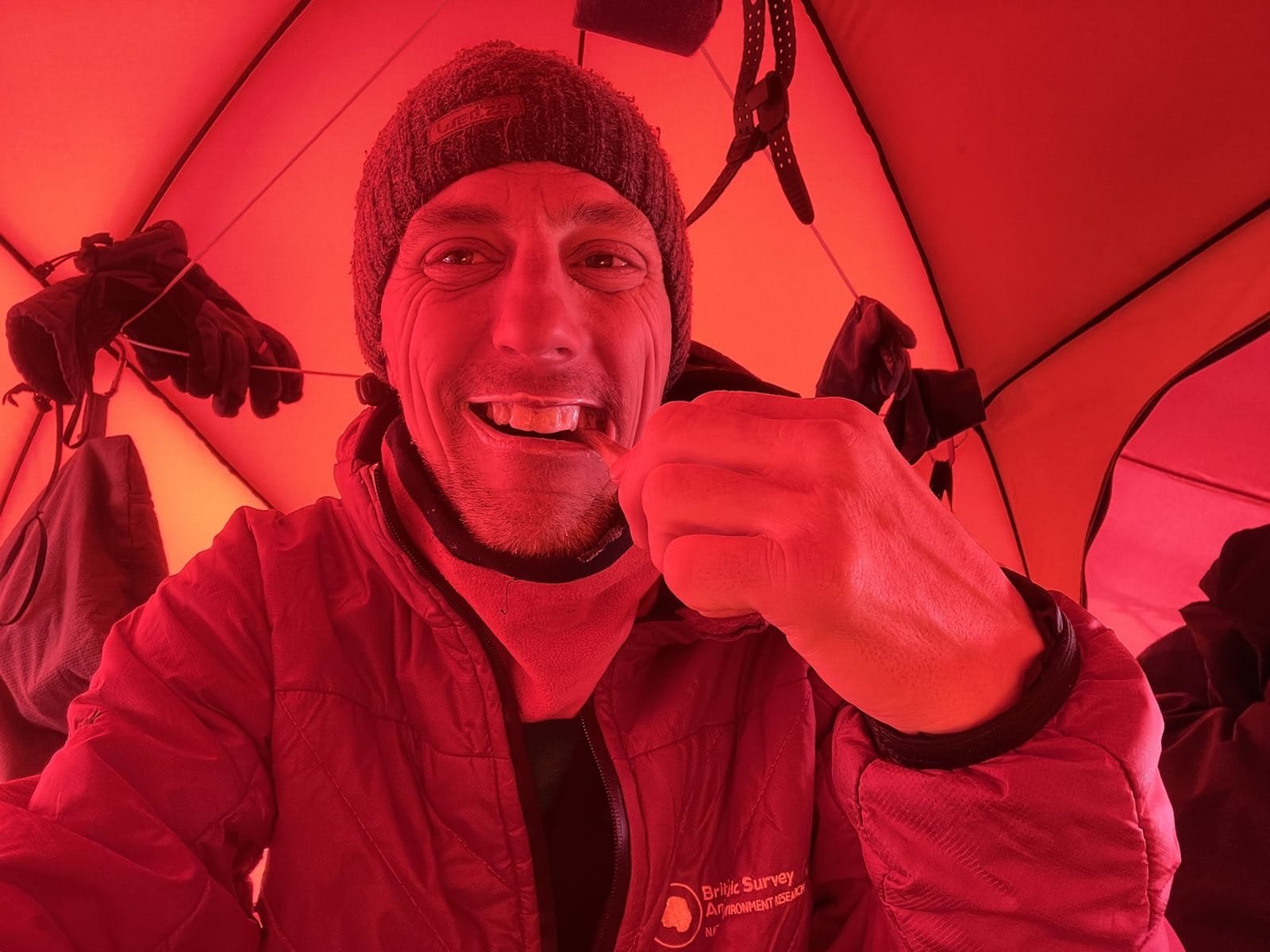Asbestos, Champagne, and a Pirate Ship
by ASH Smyth
October 2023
A pal picks up the exceedingly prestigious Polar Medal.
We were just getting stuck in at the Defence Force bar the other night, when my mate Steve began to gather up his things. He was collegially booed—as per the byelaws—til it transpired he had a plane to catch… to see the King about a Polar Medal.
With all respect to Steve, this came as something of a shock: in the two-plus years that I’ve known him, he’s had an office job, and now is managing construction of the new old people’s home in Stanley.
But then apparently it came as a surprise to him, too.
Steve Brown is a very modest guy. In fact, that’s an official part of the citation. To paraphrase his former boss, the Chief Exec. of the Government of South Georgia and the South Sandwich Islands (I know, I know), his affability, modesty, soft-spokenness, and ‘notable physical and emotional endurance’ are all part of a package of ‘effortless competence’.
The narrowest criteria for this award insist on ‘living and working in the arduous conditions of a polar environment [for] not less than 12 months.’ Over two decades and change in the southerly reaches of the world, Steve has notched up, in total, 114 months—or 9.5 years between South Georgia, the Falklands, and the British Antarctic Territories.
And yet when I got him in for an interview at Falklands Radio, the first thing he wanted to say was he was concerned the press release had overplayed his role in the removal of asbestos from Grytviken.
“These things either happened or they didn’t, Steve.”
“Well, I know,” he squirmed, “but…”
The Polar Medal is a seriously big deal. Dating back to 1857, it is bestowed by the sovereign upon individuals who have outstanding achievements in the field of polar research (Scott, Shackleton, Fiennes, et al), and with only about a thousand dished out so far, it’s been awarded less often than the Victoria Cross.
Recipients include sea captains and pilots, oceanographers and ecologists, fisheries scientists, and expedition leaders. A couple of dozen truly extraordinary individuals (including, this year, the explorer Sir David Hempleman-Adams, volcanologist John Smellie, and palaeontologist Simon Kelly) have even won it twice.
But in amongst the world-leading glaciologists, ionisphericists, microbiologists, and so on, it is notable that the back-room guys (if one may put it that way) have not gone unrepresented. Diesel mechanics, carpenters, and radio technicians make their appearances as well, along with dog drivers, dental officers, cooks, and IT support specialists.
Steve’s listed achievements (as a ‘Polar Engineer’, NB) include driving the transition to renewable energy in South Georgia, getting up to his elbows—yes—in asbestos, saving lives at sea, leading the search for a crashed plane, discovering a mega iceberg, helping produce an Attenborough-voiced short film, keeping Covid out of places where urgent help is absolutely not at hand, overseeing a £10m wharf re-development (to bring it up to standard for the RSS Sir David Attenborough), and getting South G’s first and only wood-fired pizza oven installed.
All very Indiana Jones vs the South Atlantic, I sum up, enviously. Steve’s response: “I think that probably makes it sound a lot grander than it actually was…!”
He turns out to have had one of those ‘become by doing’ careers. After finishing school in the late 90s, he changed his mind six months into an Architecture degree, and took on a four-year apprenticeship instead, as an electrician with a local Cambridgeshire company. Pretty soon he was working on major industrial jobs like university labs and army bases—“everything from sockets in houses to military installations”—as well as heritage sites such as Ely Cathedral.
He knew about the British Antarctic Survey because his sister’s friend worked for them, “but I was always frustrated because I never saw any jobs advertised for electricians.” But then in 1998 he got his chance, and after a second interview “came South… And I’ve never escaped the South Atlantic since!”
Job No.1 was at Rothera Station on Adelaide Island, just off the Antarctic Peninsula. “It was crazy. We worked hard and we played hard. I have vivid memories of finishing work, eating your tea as fast as you can, then getting up the slopes to go skiing til midnight, have a quick beer, come back down, go to bed and then get up to go to work again in the morning.”
What work does an electrician do on an Antarctic base, then?
He says he was quite lucky to land a couple of (Austral) summer seasons where there were bigger projects —i.e. not just maintenance—to be done: “so that was pretty much just like my normal background: commercial, industrial electrical work. And not as cold as I was expecting it to be. Amazing padded overalls pretty much did the business most of the time!”
Things stepped up a gear, though, when the base commander at Signy Island (in South Orkney) suggest Steve might quite enjoy South Georgia.
He went to King Edward Point in early February 2001, and found himself witnessing the handover from British military control (post-Falklands War) to a civilian government. “They dropped a case of champagne into the bay, by Hercules. And then we went straight into our winter with a new base and our new team.”
The next highlight was the asbestos legacy at the abandoned whaling station in Grytviken, a place that's gone from being an absolute no-go zone to a beacon of environmental clean-up. “I feel quite lucky,” Steve says, “to have seen it as it was, with all the chimneys and stuff before they came down; but obviously it needed to be dealt with for ongoing tourists and just the well-being of people working on the island.”
Since then he’s moved through into more managerial roles, albeit with a strong sideline in scientific scuba diving. He brushes this off as ‘not polar’, being merely in the Falklands and South Georgia; but I counter that not everyone can claim they have a sea sponge—Mycale (Mycale) brownorum—named after them. Does he at least keep a picture of his in the downstairs loo? He laughs: “I do, actually!”
His CV reveals he once almost spent two years straight at KEP—popping back to the UK only briefly to retrain as station leader. I ask how folk keep themselves occupied during the winter in these locations.
“Well, South Georgia’s different from the other stations. With the fishing season it actually gets busier in the winter. Most of the research stations are quiet and doing fun things for Midwinter’s Week, say; but we were going out to conduct ship inspections on Midwinter’s Day, and trying to get that done as soon as possible so we could come back and celebrate. On the social side, there was always something going on, though. And you always do something a bit special on Saturday night, so that breaks the weeks up as well.”
“You don’t ever get bored?”
“No—if you have a day off you can get out on the hills. I mean, we had a very tiny travel area compared to what they've extended it to now, but there was still masses of skiing and climbing you could do. If you want to make something you've got good workshops; and there are always movies and books. I don't ever remember being bored anywhere.”
Hardly a lifestyle for everyone, obviously. But in twenty-plus years the region has clearly not relaxed its grip on Steve. Though he now works in Stanley, late last year he decided he needed to spend most of his leave (and tonnes of his own money), on going on a holiday… to South Georgia.
This was, admittedly, a ‘holiday’ which involved helping crew the yacht Vinson of Antarctica (under the captaincy of the renowned Skip Novak), and then undertaking what Steve calls “a better version” of the infamous Shackleton crossing, from King Haakon Bay to Stromness whaling station, “one of the best things I've ever done.”
“In twenty-plus years the region has clearly not relaxed its grip on Steve.”
Very sadly, and very unexpectedly, his father died right at the end of the trip, and Steve had to get back to the UK immediately. By sheer fluke, the protection vessel MV Pharos was just about to leave King Edward Point; but it is circumstances like this which rather underline just how remote South Georgia is.
We’ve barely had time to touch on his adventures up and down the rest of the Atlantic, including stints on St Helena, Ascension, and even microscopic Tristan da Cunha (where Steve once helped build a hospital, and which he says is even more isolated than some parts of Antarctica). But I take a quick look down at my notes, to see if there is anything we’ve mi—
“Hang on! What’s this about a pirate ship??”
“Oh, that…” he shrugs—and embarks upon a ripping yarn about illegal fishing, moonlit boat chases, and Interpol.
Bit light on eye patches, for my taste; but still—I hope he gets to tell it at the medal ceremony this afternoon.


